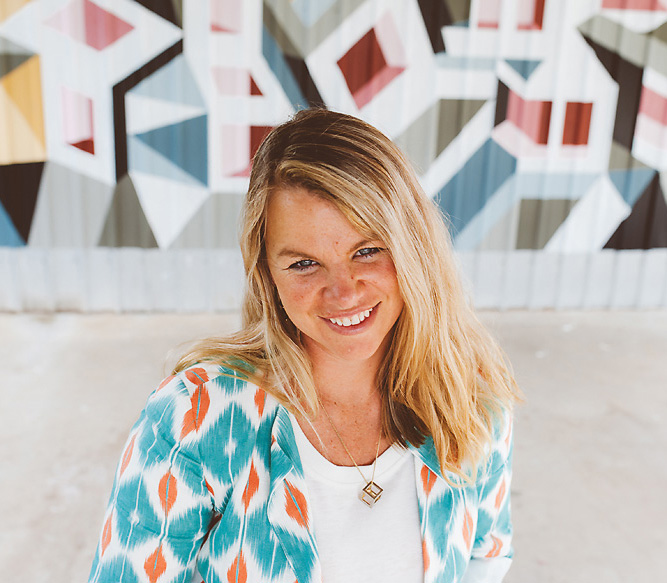Small town creative: how to live, work and create in a regional area
I am writing this blog post while also preparing for a trip from my hometown in Hamilton, Victoria, to Sydney. So it really is a good time for me to think about what is means to be a creative person living outside of the city and how I have gone about finding and generating creative work opportunities.
In my flying two day trip to Sydney, (which is all the time I can spare away from home at this time of year), I am meeting with a Gallery Director to discuss a future exhibition, face to face (so old school), and meeting up with both new and old friends. Prior to living in my current location, I spent many years living in the Northern Territory. I then moved to rural New South Wales. So over the years I have travelled many miles seeking to both develop opportunities for my work and educate my eye. This naturally leads to my first tip.
Be prepared to travel
While you can 'network' and meet people over social media these days, nothing beats good old-fashioned face-to-face hanging out. I feel like real communication is even more powerful nowadays, given the plethora of the watered-down online type. I actually get very nervous before I travel outside my comfort zone. It doesn’t come as naturally to me as it might seem. But the effort is always worth it. So be prepared to get out and about: to seminars, conferences, and CWC events! Once I even went to New York with my art, but that is another story.You have to be smart about your time, and of course you have to also do the work back at home, but factor travel into your game plan and you will be all the richer for it. If you are like me, you will come home overstimulated and full to the brim of ideas, but hey, when you live in the country, you will have plenty of time to think and absorb all you have taken in and work out your next best step.
Make yourself known
I am not talking about being a show-off, or arrogant, or forcing your ideas onto people (although these things work for some!). I am talking about finding out who is responsible for the 'arts' at your town council or in your local government. Allocate an hour or two a week to these kinds of meeting adventures. If you are shy, bring your business card or a small piece of work to help introduce yourself. You have to be yourself to sell yourself.
Is there a gallery or two in your town? Go say hi, see if you can’t meet the relevant people in charge. Be polite and curious. It goes a long way. Ask to get on mailing lists. Show an interest, if there are things you would like to see happen, see how you can help. Volunteer, be friendly and look for opportunities no matter how small, to start being creative in your own community. Share your ideas and start conversations about the ideas of others. This all takes time and don’t expect instant results. Be patient and consistent.
Make friends, in a variety of places, with a variety of people, across a variety of platforms I guess this is called networking (it is called networking!). But in my experience networking alone does not work. Just because someone has skills you admire, and you both love Elvis on Instagram does not mean you will be real life friends. You might be totally polar opposites on an important subject like your commitment to local business versus their 'profit margin comes first always' ethic. So network away, but be open to everyone in a room. Be friendly, but not scarily so, don’t be the, "I will jump off the cliff if you famous, iconic person tells me so", kind of lady. Just be yourself and have an open mind. The one person you might gel and end up being great mates with might not be who you expected it to be.
Share the love
You don’t own your town, your community or your skill, there will be other painters and writers now and always. If you act like you do, then you will just end up lonely and small. If you start to get bothered by other people’s success, it means it is probably time for you to go to tip number one in this post, and travel again. Be humble, share the love. We all have something unique to offer and the more artists in your town doing their thing and doing it well, then the more likely it is that other people from other towns might do day trips to come to see ALL your cool stuff. So be expansive. Be positive and don’t complain about what you could help change. Be a back patting kind of person, refer other artists for jobs you might be too busy to do, or that they might be a better fit for. You don’t have to be best buddies with everyone, but it helps to be nice. And if there is no drama club? Don’t whine, start one. No murals? Ask if you can paint one! Contribute if you can, with what you are good at and everyone will benefit.
Mind your own business
Don’t worry about what you will do with all the money you will one day make. When your exhibitions have red dots as far as the eye can see, or when your book makes the New York Times bestseller list, that is not when you should start thinking about the business side of things. Start now managing yourself like a business, even if you are making just an itty bit of money. Get a tax file number. Get a shoe box (or make a file on your computer). Keep your receipts. Pay an accountant to do your tax.
Probably all the money you make in the beginning will go on making boring stuff like accountants happen. The garage full of collectable cars is on the horizon. Yes. Dream big but take care of the practical stuff. In this way you will have a foundation for the future of your finances. It also means that you can start to claim all those expenses to those conferences, exhibitions and CWC meetings you travel to. (Disclaimer: I am not an accountant, see your own accountant for specific advice on business/travel matters!)
All the above has been written from my personal experience. There are highs and lows to living in a regional area when you are a creative person. The highs are that on average the living costs get cheaper the further you get from the city. For me, that means my family can live on one wage. It means I can afford to travel and make my artwork. It also means that I can focus on my work for long periods if need be and I can pick and choose what events I want to invest my energy in. These are all big highs. No commute, less stress, and as much community spirit as I will ever need. Did I mention more time to actually make creative work?!
Then there are the lows, the FOMO that Brene Brown made famous. This feeling drops by from time to time. I have to watch that. The planning and effort required to travel can be draining and exhausting. The sense of isolation is also very real at times, and the snobbery you can experience from city folk, (sorry city readers - athough I must say CWC folk have never made me feel this way). There is also the fact that sometimes you feel like that if you just gave up and stopped being creative, no one would probably ever notice, (until 100 years after you're gone, and your diaries are published to high acclaim).
I am wanting to write more in this series and so if you are a CWC reader who also lives regionally, I would love to hear from you and possibly even write your story here. Please get in touch!
Photo of Jasmine by Danielle Thomas from ONE DAY COLLECTIVE.
Jasmine Mansbridge is a painter and mum to five kids. She regularly blogs about the intersection of creative work and family life, as well as her recent projects and travels. You can also find her on Instagram.


